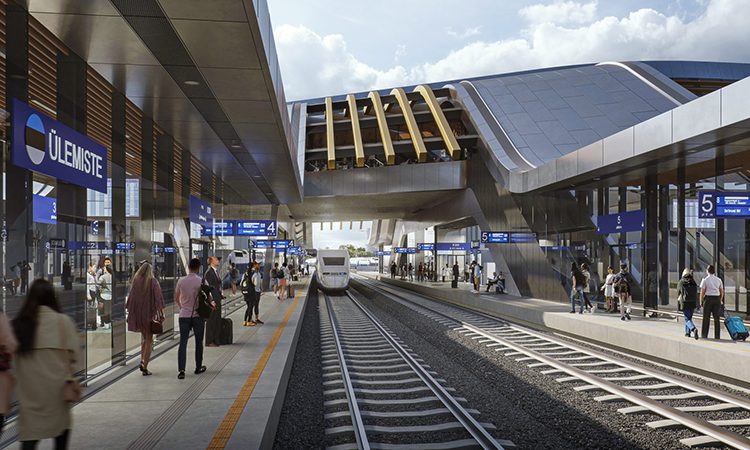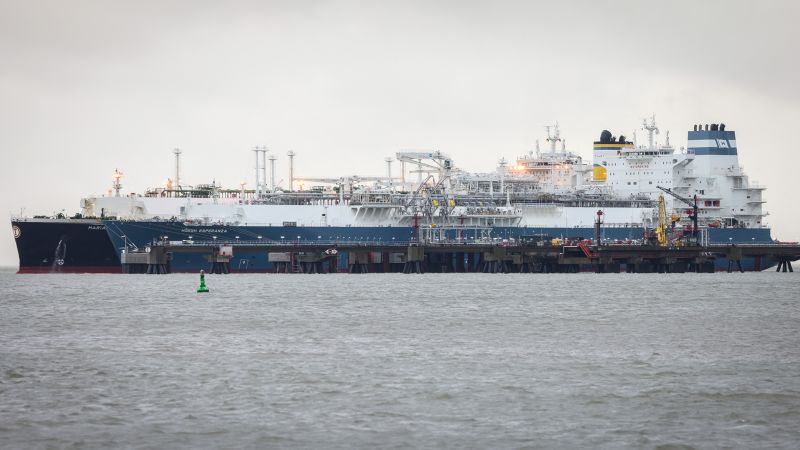Infra
Greenpeace urges greater investment in European rail infrastructure, supports Rail Baltica

Greenpeace’s new report calls for increased European rail investment, citing Rail Baltica as a crucial project for enhancing connectivity and reducing greenhouse gas emissions.

Credit: Rail Baltica
Rail Baltica has announced that Greenpeace, a global non-profit dedicated to environmental advocacy, has called for increased investment in Europe’s rail infrastructure in its latest report, “Connection Failed.” The study, released in July 2024, underscores the environmental benefits of rail transport over air travel and highlights the importance of projects like Rail Baltica in addressing European connectivity and sustainability.
The study analysed 990 direct transport routes between 45 major European cities, comparing rail and air travel options. Greenpeace found that only 12% of these routes are served by direct trains, while 69% are connected by direct flights. This imbalance suggests that air travel is significantly more accessible than rail, despite trains producing considerably lower greenhouse gas (GHG) emissions.
Greenpeace’s findings reveal that aviation generates nearly five times more GHG than rail transport. As such, the environmental organisation advocates for a shift towards more rail-based travel to mitigate climate impacts. The report notes that the Baltic region, comprising Estonia, Latvia and Lithuania, is particularly underserved by rail connections. Tallinn, the capital of Estonia, for instance, lacks direct rail links to any of the cities analysed.
Rail Baltica, a major rail infrastructure project connecting the Baltic States to the rest of Europe, is highlighted as a key initiative in improving regional connectivity. Herwig Schuster, a transport campaigner for Greenpeace Central and Eastern Europe, likened Rail Baltica to other significant European infrastructure projects, such as the Brenner Tunnel and the Fehmarnbelt tunnel. Schuster emphasised that while new projects are crucial, maintaining and upgrading existing rail lines is equally important to encourage greater use of rail transport and reduce car dependency.
“By developing Rail Baltica, the Baltic States are contributing to leadership at European level. The developed Western world is investing in railway construction, electrification of networks and launching new development projects. Trends show that attention to this mode of transport is growing and that in the future rail transport will become even more important,” said Vytis Žalimas, CEO at LTG Infra, the company implementing Rail Baltica in Lithuania.
The project is expected to play a significant role in reducing CO2 emissions, with projections indicating a decrease of over 150,000 tonnes of CO2 annually by 2030 and more than 400,000 tonnes per year by 2050. Additionally, Rail Baltica is anticipated to contribute to a reduction in fossil fuel consumption and lower greenhouse gas emission costs, potentially saving between 2.3 to 3.1 billion euros.
Rail Baltica is also set to support the European Union’s goal of achieving net zero emissions by 2050. Kitija Gruškevica, Chief ESG Officer and a member of the management board at RB Rail AS, highlighted that the project’s commitment to renewable energy could stimulate local investments in renewable technologies, fostering a more sustainable energy future.










